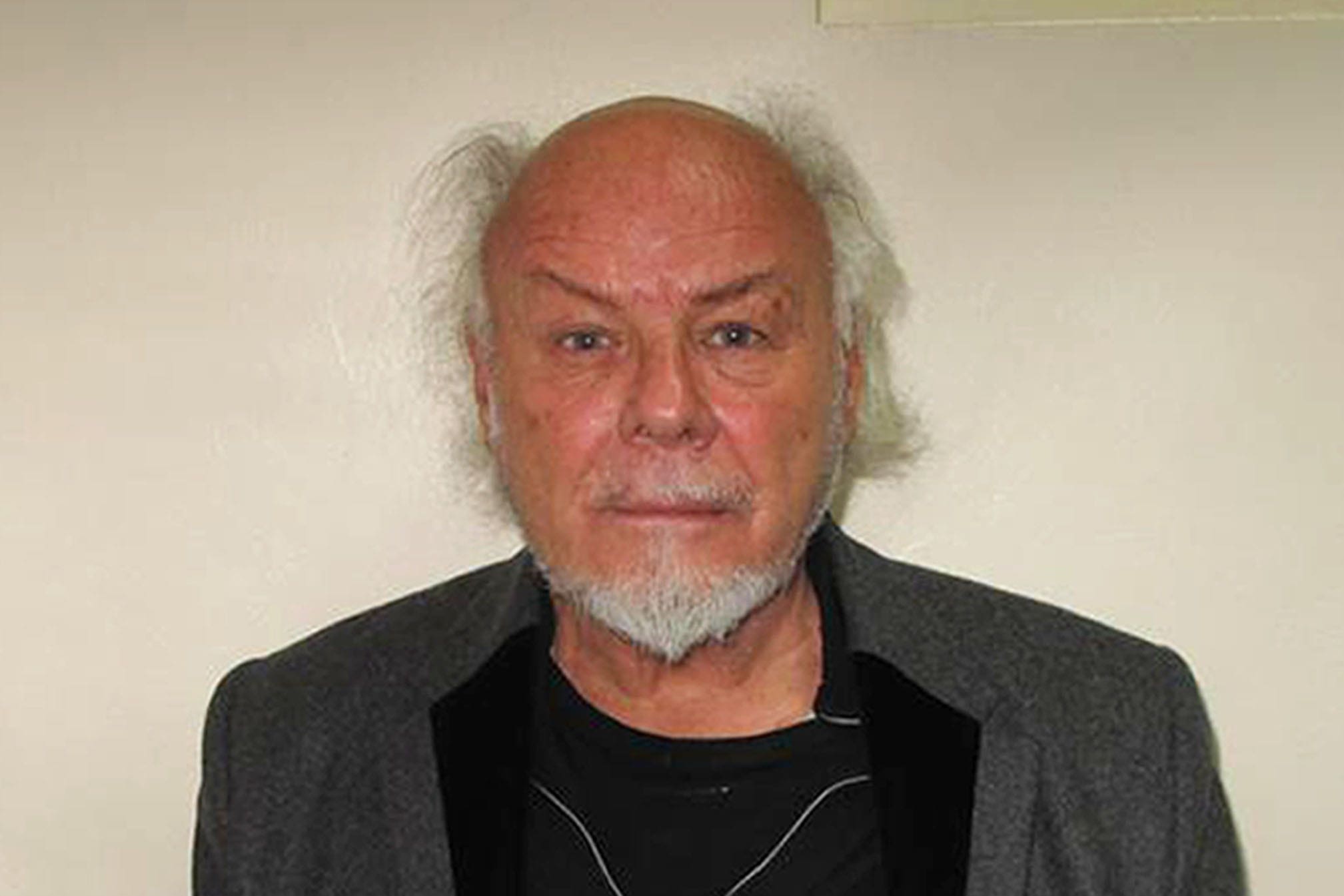Gary Glitter refused prison release by Parole Board
The paedophile former pop star was jailed for abusing three girls between 1975 and 1980.

Lawyers for one of Gary Glitter’s victims said they are “glad” the Parole Board has “done the right thing” in rejecting his bid to be freed from jail.
The decision was published on Wednesday after the disgraced paedophile pop star, now 79, made a plea to be released at a behind closed doors parole hearing last month.
Glitter, whose real name is Paul Gadd, was jailed for 16 years in 2015 for sexually abusing three schoolgirls between 1975 and 1980.
He was automatically released from HMP The Verne, a low-security prison in Portland, Dorset, in February last year after serving half of his fixed-term determinate sentence.
The panel considered that Mr Gadd was appropriately located in custody where outstanding levels of risk could be addressed
Glitter was put back behind bars less than six weeks after walking free when police monitoring showed he had breached his licence conditions by reportedly trying to access the dark web and viewing downloaded images of children.
The Parole Board said: “After considering the circumstances of his offending, the lack of progress made while in custody and on licence, and the other evidence presented at the hearing, the panel was not satisfied that release at this point would be safe for the protection of the public.
“Rather, the panel considered that Mr Gadd was appropriately located in custody where outstanding levels of risk could be addressed.”
Lawyer Richard Scorer, who represents one of Glitter’s victims, said: “This is the right decision and in our view the only decision that the parole board could have made.
“Everything we know about Gadd/Glitter indicates that he remains a risk to children and has never shown any remorse.
“Releasing him would have been utterly wrong and we are glad the parole board has done the right thing.
“We only hope that Glitter will now serve this full sentence – it is completely unfair that our client has to endure this Glitter parole circus over and over again.”
Parole judges review the cases of criminals who are recalled to prison to decide whether they should be re-released or stay behind bars for the rest of their sentence.
The hearing took place in secret after a request for proceedings to be heard in public was rejected on the grounds it was too difficult to contact all his victims.
According to a document setting out a summary of the ruling, Glitter gave evidence during the proceedings – which took place over video – and the parole panel also heard from his probation officer, police and other officials, as well as receiving statements from victims. Justice Secretary Alex Chalk is understood to have opposed the release.
The parole judges “found on the evidence that at the time of the offending, and while he was on licence, Mr Gadd had a sexual interest in under-age girls” and also voiced concerns about “the lack of victim empathy which he had continued to show”, according to the document.
Since being sent back to prison his behaviour was reported to have been “generally good” but “at no stage during his sentence had Mr Gadd undertaken accredited programmes or other training interventions to address his offending, due to ineligibility of a programme and the unsuitability of other programmes because of his denials”, the parole papers said.
His probation officer advised the danger Glitter posed “could not be safely managed in the community at this point” and a detailed assessment would be needed to find “suitable treatments” which could reduce his risk in future.
Glitter’s fall from grace began in the late 1990s when he was jailed for possessing thousands of child abuse images.
In 2002 he was expelled from Cambodia amid reports of sex crime allegations and in March 2006 he was convicted of sexually abusing two girls, aged 10 and 11, in Vietnam, and spent two-and-a-half years in jail.
The offences for which he was jailed in 2015 came to light as part of Operation Yewtree, the Metropolitan Police investigation launched in the wake of the Jimmy Savile scandal.
Earlier this year, Glitter was accused of showing a “total lack of remorse” towards his victims by lawyers representing a woman he abused when she was 12 years old and who is now suing him.
He will be eligible for another parole hearing in around a years’ time. If the Parole Board does not recommend him for release in future, he will walk free when his sentence expires in February 2031. By that time, he could be aged 86.
Last year the former head of Scotland Yard’s Paedophile Unit suggested Glitter will likely die in prison after being re-called.
Mike Hames said the 1970s glam rock star would always represent a danger to children and returning him to custody was appropriate.
A Ministry of Justice spokeswoman said: “Public protection is our number one priority which is why we welcome the Parole Board’s decision to block the release of Paul Gadd.”
Bookmark popover
Removed from bookmarks